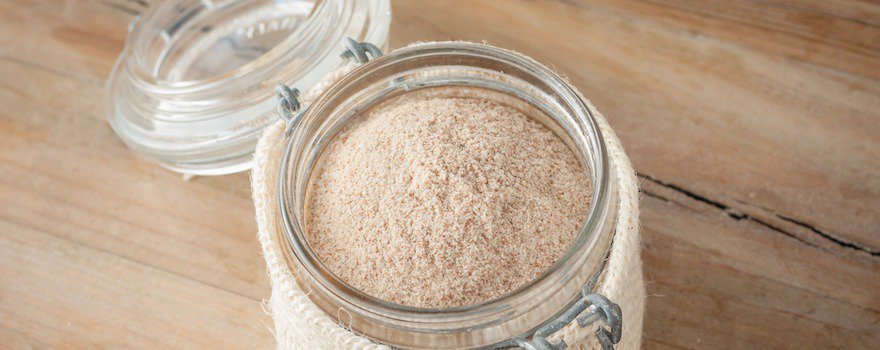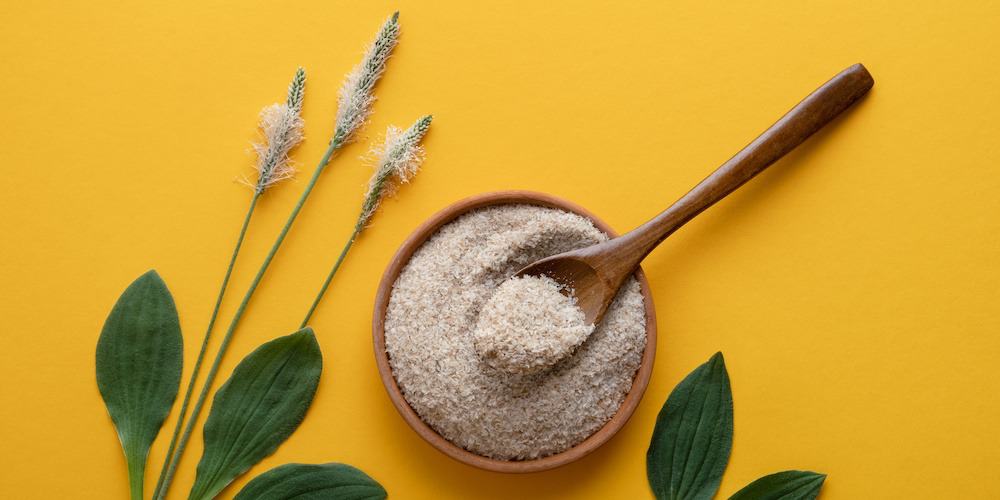What is psyllium?
Psyllium blond, also known as ‘Indian plantain,’ is a plant whose seeds are edible. Each one is protected by a husk or coating, primarily composed of mucilage.
This viscous substance contains a large amount of fiber and protein. It is what gives psyllium its beneficial effects on the digestive system.
During digestion, its soluble fibers are capable of absorbing water from food. They transform into a gel that facilitates transit and improves stool consistency.
Thus, psyllium is useful for relieving constipation as well as diarrhea, ulcerative colitis, and irritable bowel syndrome.
Its fibers also have prebiotic properties. Beneficial for the microbiota, they contribute to the growth of a healthy and balanced flora.
As shown in this study, taking psyllium improves the composition of the microbiota by increasing populations of good bacteria.
Also read | How to choose the best psyllium?
Psyllium poses no danger. However, there are contraindications and its consumption is not recommended for some people. It can also cause side effects.

In which cases is it contraindicated?
In case of gastrointestinal obstruction
People suffering from a gastrointestinal obstruction should avoid consuming it. Indeed, the soluble fibers increase the size and volume of the stool. They can therefore worsen the blockage.
For the same reason, psyllium is not recommended in case of fecal impaction, gastrointestinal stenosis (narrowing of the intestine) or colon.
In case of nutritional deficiencies
If you suffer from nutritional deficiencies, avoid consuming psyllium. Indeed, it can reduce the absorption of certain vitamins and minerals such as zinc, iron, calcium, magnesium, and vitamin B12.
In people with diabetes
In this case, it poses no real danger. It is even interesting for regulating blood sugar as shown in this study.
However, regular intake of psyllium requires an adjustment of antidiabetic treatment. Indeed, it can reduce the absorption of hypoglycemic drugs. It is therefore important to be monitored by a doctor who, if necessary, will adjust the dosage of the medications.
Finally, it is preferable to consume psyllium outside of medication intake, more than 2 hours before or after.

What are its side effects?
Main side effects
Psyllium is generally well tolerated by the body. However, it is possible to experience side effects:
- bloated stomach
- flatulence
- intestinal disorders
These symptoms appear at the beginning of intake. They are most often temporary and eventually disappear. If not, it’s advisable to reduce the doses or stop taking it.
Although rare, there are cases of allergy to psyllium. This manifests as difficulty breathing, vomiting, a skin rash, or swelling after intake. In this case, stop your consumption and consult a doctor.
Precautions for use
Throughout the duration of taking psyllium, be attentive to your body. Start with small doses and then gradually increase according to your digestive tolerance.
Psyllium should not be consumed for too long a period: maximum 10 days.
Also remember to stay properly hydrated. Drink plenty of water (1.5 to 2 L/day) to avoid any risk of digestive tract obstruction.



